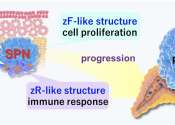Study suggests adolescent stress may raise risk of postpartum depression in adults
In a new study, a Johns Hopkins Medicine-led research team reports that social stress during adolescence in female mice later results in prolonged elevation of the hormone cortisol after they give birth. The researchers say ...
2 hours ago
0
6









